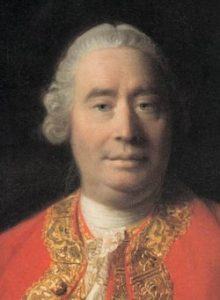Julian Baggini in Aeon:
 Socrates died by drinking hemlock, condemned to death by the people of Athens. Albert Camus met his end in a car that wrapped itself around a tree at high speed. Nietzsche collapsed into insanity after weeping over a beaten horse. Posterity loves a tragic end, which is one reason why the cult of David Hume, arguably the greatest philosopher the West has ever produced, never took off.
Socrates died by drinking hemlock, condemned to death by the people of Athens. Albert Camus met his end in a car that wrapped itself around a tree at high speed. Nietzsche collapsed into insanity after weeping over a beaten horse. Posterity loves a tragic end, which is one reason why the cult of David Hume, arguably the greatest philosopher the West has ever produced, never took off.
While Hume was lying aged 65 on his deathbed at the end of a happy, successful and (for the times) long life, he told his doctor: ‘I am dying as fast as my enemies, if I have any, could wish, and as easily and cheerfully as my best friends could desire.’ Three days before he died, on 25 August 1776, probably of abdominal cancer, his doctor could still report that he was ‘quite free from anxiety, impatience, or low spirits, and passes his time very well with the assistance of amusing books’.
When the end came, Dr Black reported that Hume ‘continued to the last perfectly sensible, and free from much pain or feelings of distress. He never dropped the smallest expression of impatience; but when he had occasion to speak to the people about him, always did it with affection and tenderness … He died in such a happy composure of mind, that nothing could exceed it.’
In his own lifetime Hume’s reputation was mainly as a historian. His career as a philosopher started rather inauspiciously.
More here.
